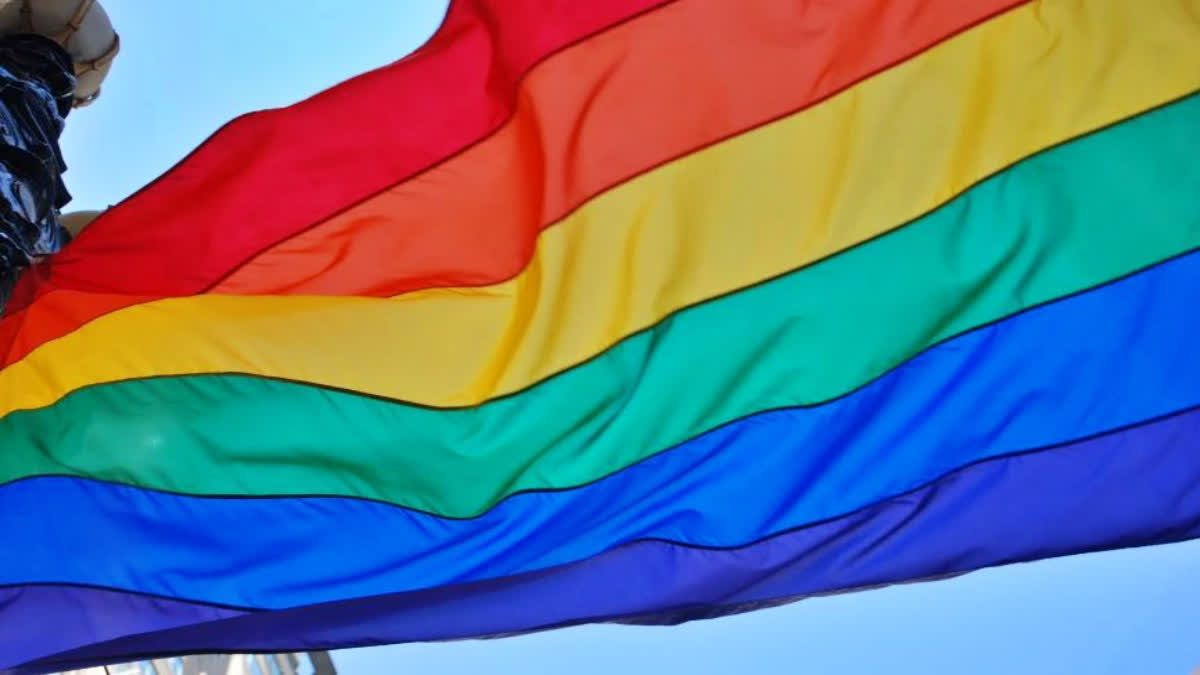Hyderabad: In a ground-breaking ruling, the Supreme Court of India declared that an individual's right to enter into a union cannot be restricted based on sexual orientation, emphasizing the fundamental importance of equality and non-discrimination. While the court refrained from legalising marriage equality, the verdict carries significant implications for the LGBTQ+ community, particularly in the areas of adoption and practical concerns. The five-judge bench delivered four separate judgments, with a division primarily centred on the adoption rights of queer couples.
Judicial Support for LGBTQ+ Rights
Chief Justice of India DY Chandrachud and Justice SK Kaul were at the forefront of recognizing the rights of queer couples, including their right to adopt. Chief Justice Chandrachud stated, "Choosing a life partner is an integral part of choosing one's course of life. This right goes to the root of the right to life and liberty under Article 21." He further stressed that the right to enter into a union encompassed the right to choose a partner and the recognition of that union. According to him, failure to acknowledge such unions would result in discrimination against queer couples.
Chief Justice Chandrachud also challenged the notion that queerness is an urban, elite concept. He emphasized that homosexuality and queerness are not limited to urban areas or exclusive to certain societal classes, debunking the notion that marriage equality is only relevant to specific segments of society.
Justice Kaul echoed the Chief Justice's sentiments and called for an anti-discrimination law. He pointed out that same-sex relationships have been recognized throughout history, not solely for sexual activities but as relationships that fulfil emotional needs. He agreed with the judgment of the Chief Justice and argued that constitutional courts must uphold rights guided by constitutional morality rather than social morality.
Divergent Views on Adoption Rights
The bench delivered a split 3-2 judgment concerning adoption rights. While Chief Justice Chandrachud and Justice Kaul supported the right of queer couples to adopt, Justices S Ravindra Bhat, PS Narasimha, and Hima Kohli disagreed.
Justice Bhat concurred with the idea that queerness is not confined to urban or elite settings but did not concur with the Chief Justice's directions. He argued that when the law is silent, Article 19(1)(a) does not compel the State to create laws to facilitate that expression. He contended that it should be the legislature's role to address these issues and that the court should not create a legal framework for queer couples.
Moreover, Justice Bhat expressed concerns about the State's obligation as parents to explore all aspects when determining the best interests of children in need of stable homes. He suggested that the State should consider multiple factors, which may not align with the concept of adoption by non-heterosexual couples.
In response, Chief Justice Chandrachud disagreed with Justice Bhat's approach, emphasizing the importance of addressing discrimination against queer couples through clear directives. This division underscores the complexity of the adoption issue, with different judges emphasizing distinct aspects and approaches.
Government's Approach and the Formation of a Committee
The Supreme Court's verdict also addressed the government's role in addressing the practical concerns faced by same-sex couples. The central government, in response to the court's earlier inquiry, had revealed its intention to create a committee, headed by a cabinet secretary, to explore administrative solutions for issues such as obtaining ration cards, pension, gratuity, and succession rights. This approach aims to provide practical relief to same-sex couples without directly addressing the marriage equality question.
The court endorsed the formation of this committee and called upon the government to take necessary steps to address the challenges faced by same-sex couples. This demonstrates the court's commitment to ensuring the rights and welfare of LGBTQ+ individuals are upheld.
Implications of the Verdict
While the Supreme Court's ruling stopped short of legalizing marriage equality, it significantly advanced LGBTQ+ rights in India. The court's acknowledgment of an individual's right to enter into a union without discrimination based on sexual orientation marks a monumental step towards achieving equality and combating discrimination.
The division within the bench regarding adoption rights reflects the complex nature of the issue. It underscores the importance of considering the best interests of children while also recognizing the rights of queer couples. This debate is likely to influence future discussions on adoption laws in the country.
The creation of a committee to address practical concerns is a pragmatic step towards improving the quality of life for same-sex couples. It demonstrates the court's recognition of the challenges faced by LGBTQ+ individuals and their need for practical solutions. The Supreme Court's ruling sends a powerful message about the importance of LGBTQ+ rights in India.
While there is still much work to be done, this decision represents a significant step towards achieving greater equality, non-discrimination, and recognition of the rights of queer individuals and couples in the country. The ongoing debate surrounding adoption rights highlights the complexity of the issue and the need for a thoughtful and balanced approach to ensure the best interests of children while respecting the rights of LGBTQ+ couples. This historic verdict will undoubtedly shape the future legal landscape for LGBTQ+ rights in India.



